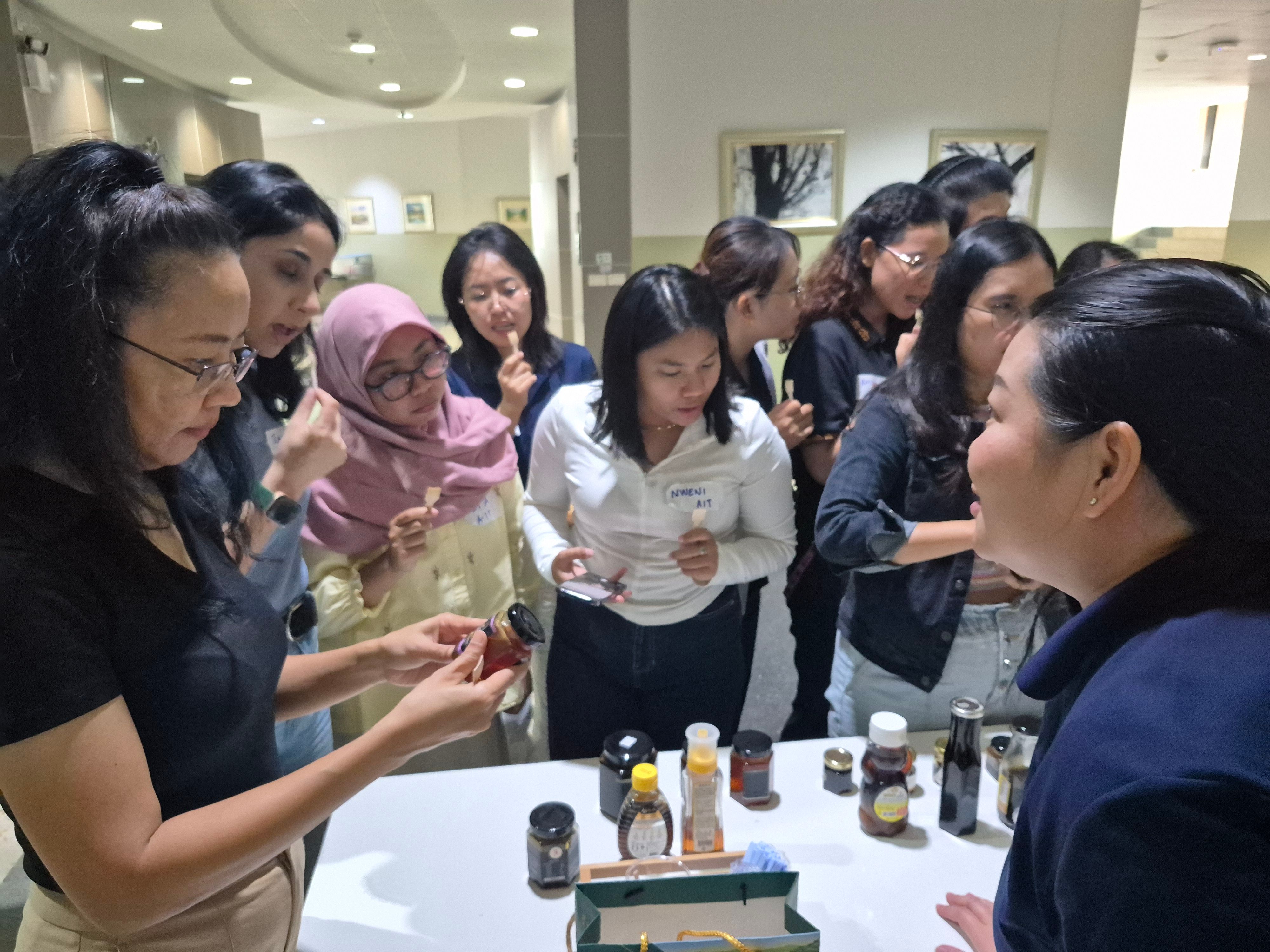The Faculty of Agriculture, Kasetsart University, successfully hosted THE-GLOW Mini-Symposium as part of the Transdisciplinary Course on 5 June 2025. The event welcomed students from Kasetsart University, Thammasat University, and the Asian Institute of Technology (AIT).
The symposium was formally opened by the Dean of the Faculty of Agriculture. The program was designed by Assoc. Prof. Atsalek (Head, Department of Entomology) and Asst. Prof. Chama Inson (Department of Entomology), who aimed to create an interactive platform for students to engage with experts and local farmers on pressing issues at the intersection of stingless beekeeping, climate change, and public health.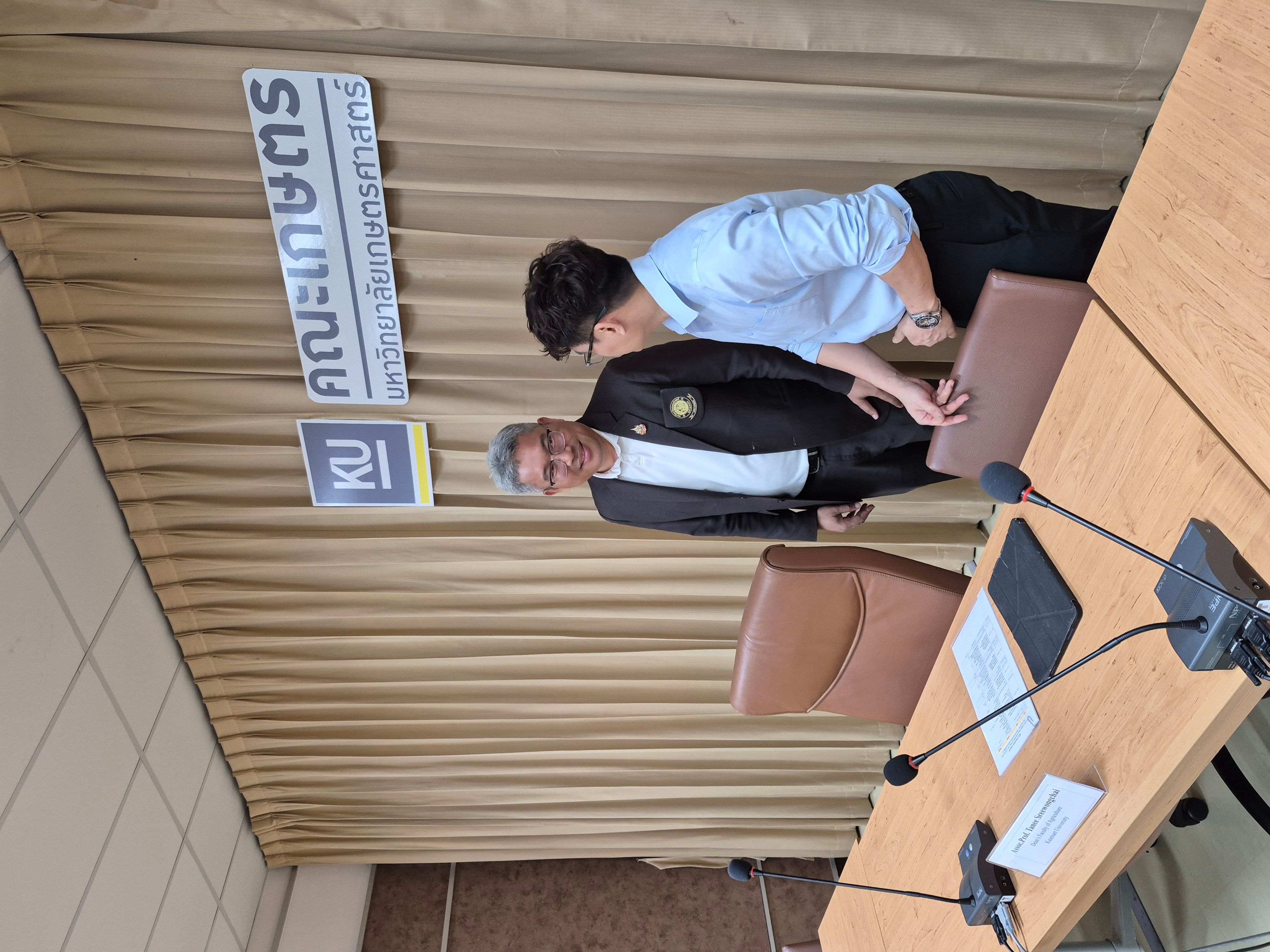
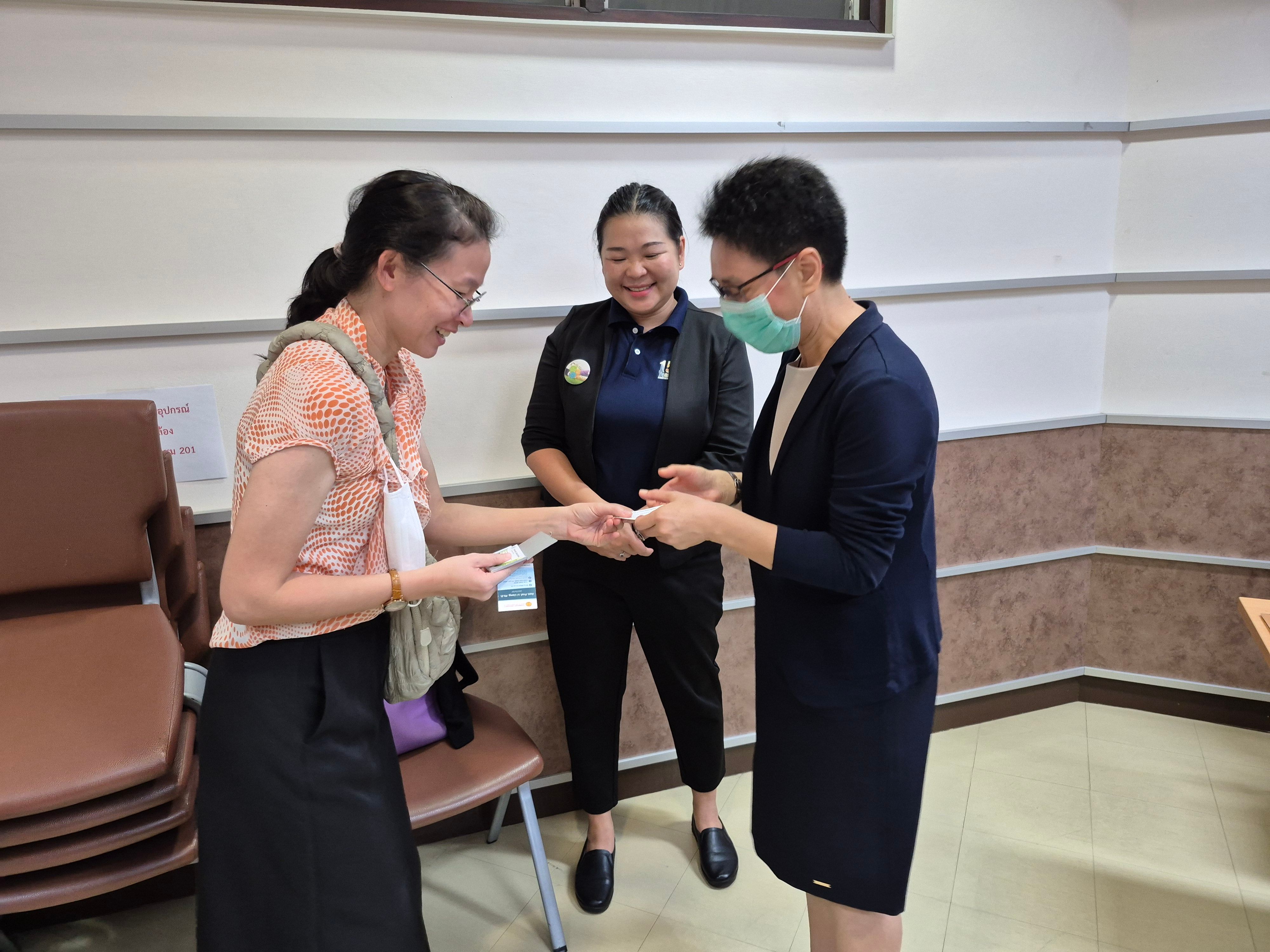 Key Highlights
Key Highlights
Government perspectives:
Dr. Virachnee Lohachoompol and Ms. Natthakarn Nammakuna (National Bureau of Agricultural Commodity and Food Standards) presented on Ensuring Food Safety in Thailand Honey Products.
They addressed strategies to support beekeepers, sustainable honey production, and food safety regulations for honey in Thailand and beyond.
The student-led discussion following the talks allowed direct dialogue with government policymakers.
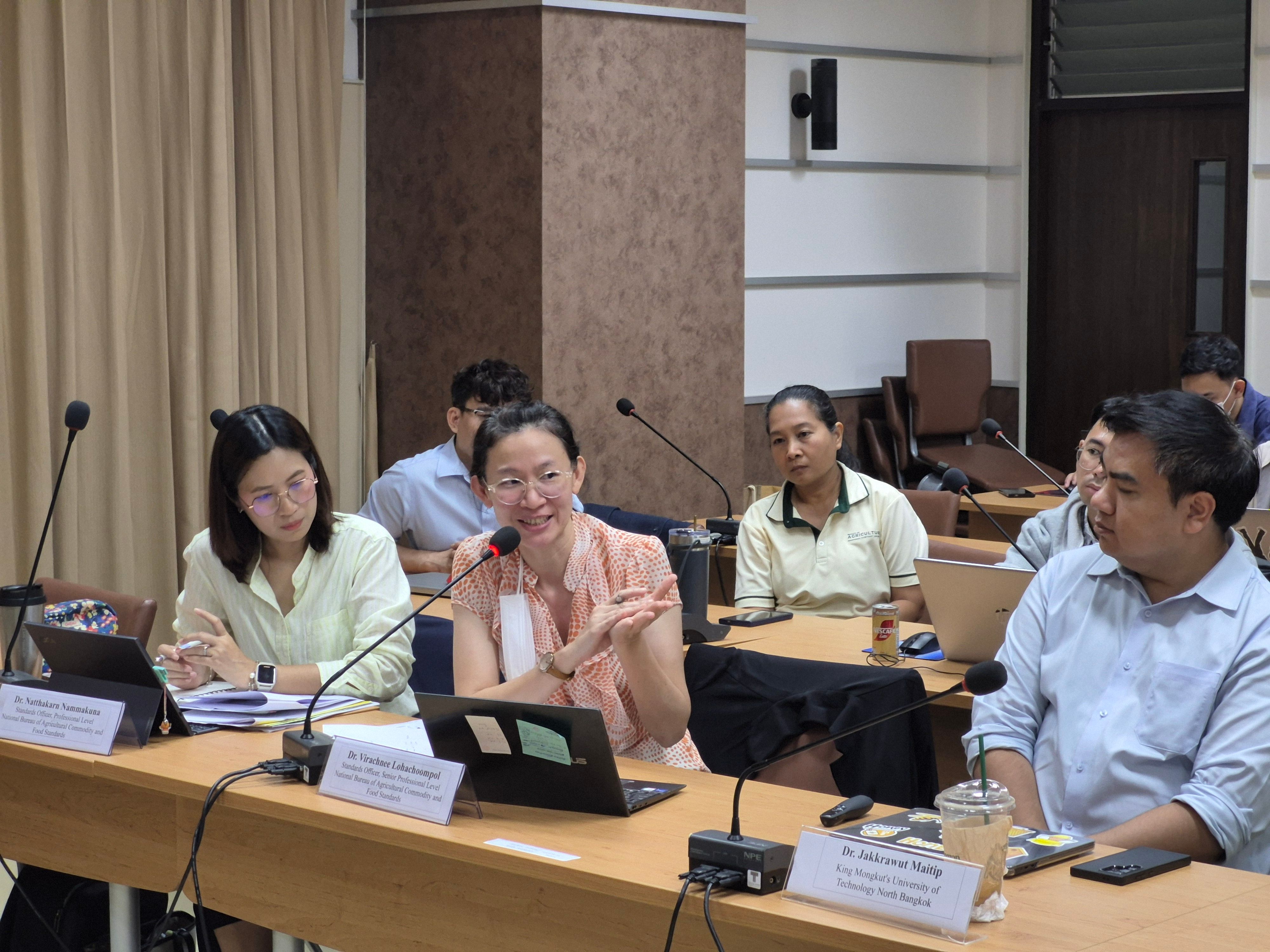 Academic contributions:
Academic contributions:Dr. Jakkrawut Maitip (King Mongkut’s University of Technology North Bangkok) spoke on Honey Bee Health and Its Impacts on Human and Environmental Health: A One Health Perspective, emphasizing links between honey quality, air quality, and environmental health.
Assoc. Prof. Orawan (Director, Apimondia Regional Commission for Asia; Director, Native Honey Bee and Pollinator Research Center, KMUTT) delivered a lecture on Sustainable Stingless Beekeeping: A Holistic Strategy for Enhancing Product Value Chains in Thailand.
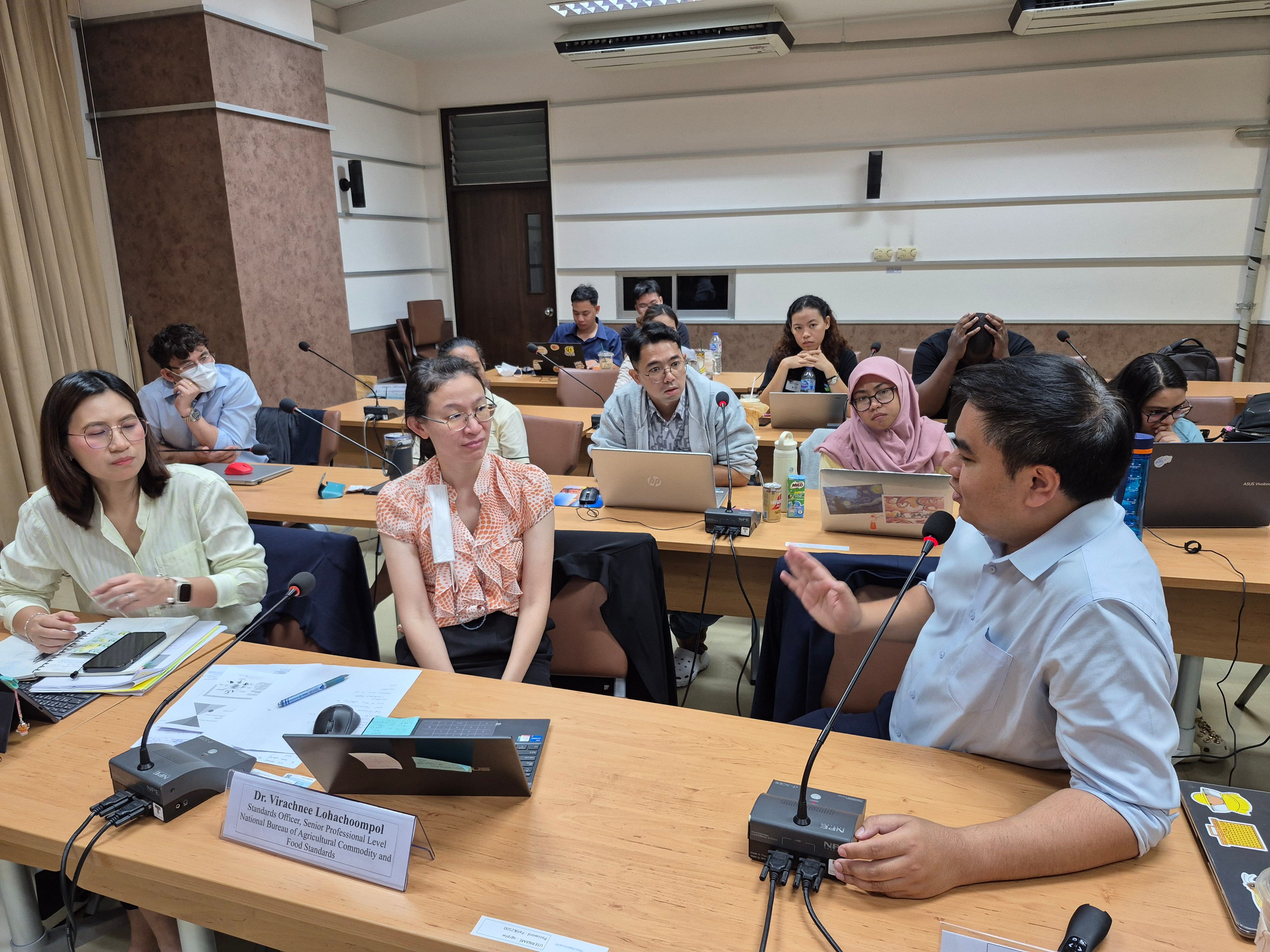
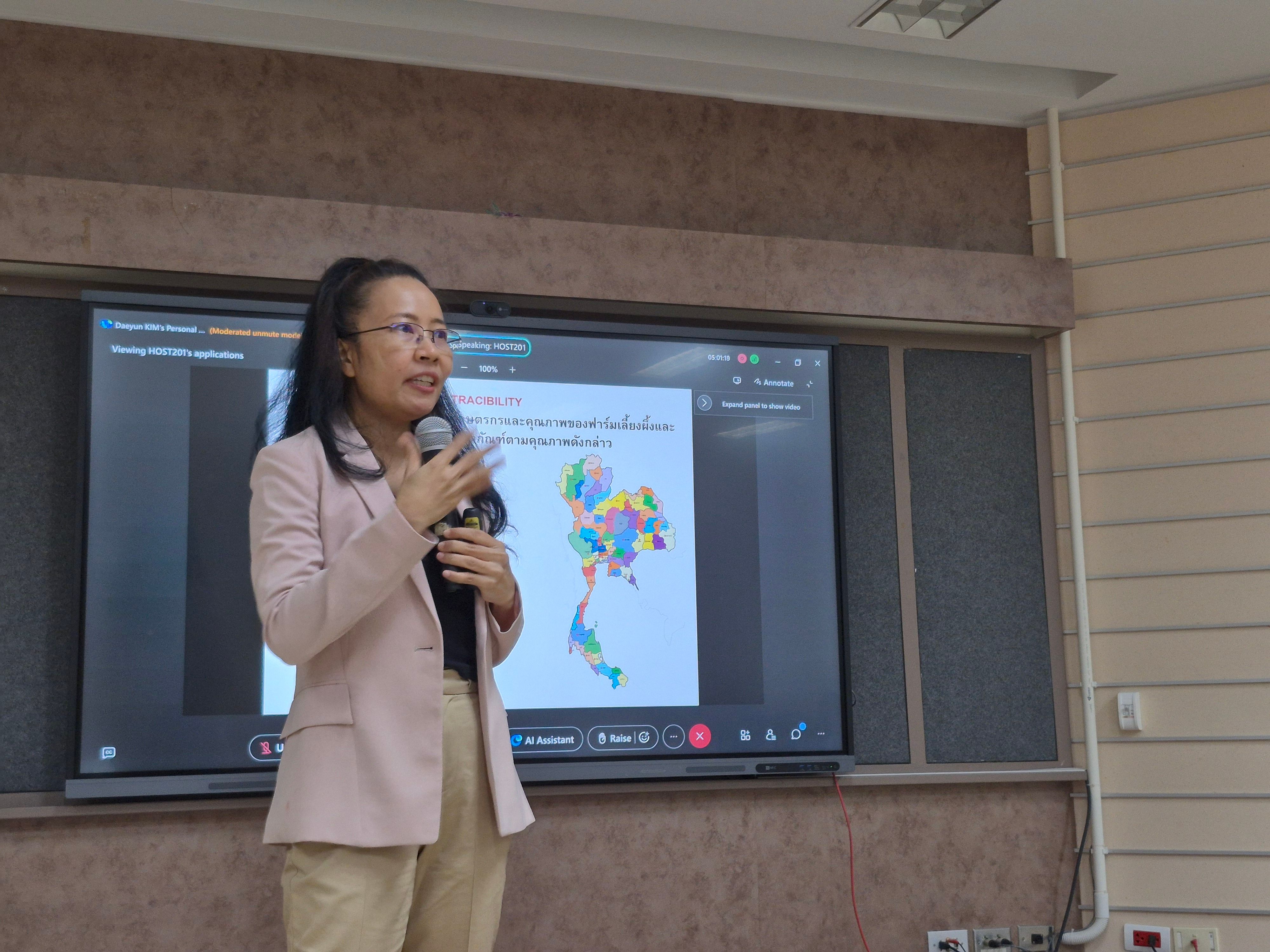 Community engagement:
Community engagement:
Students had the opportunity to interact directly with local stingless bee farmers, gaining first-hand insights into how beekeeping empowers rural communities by enhancing livelihoods and creating sustainable income opportunities.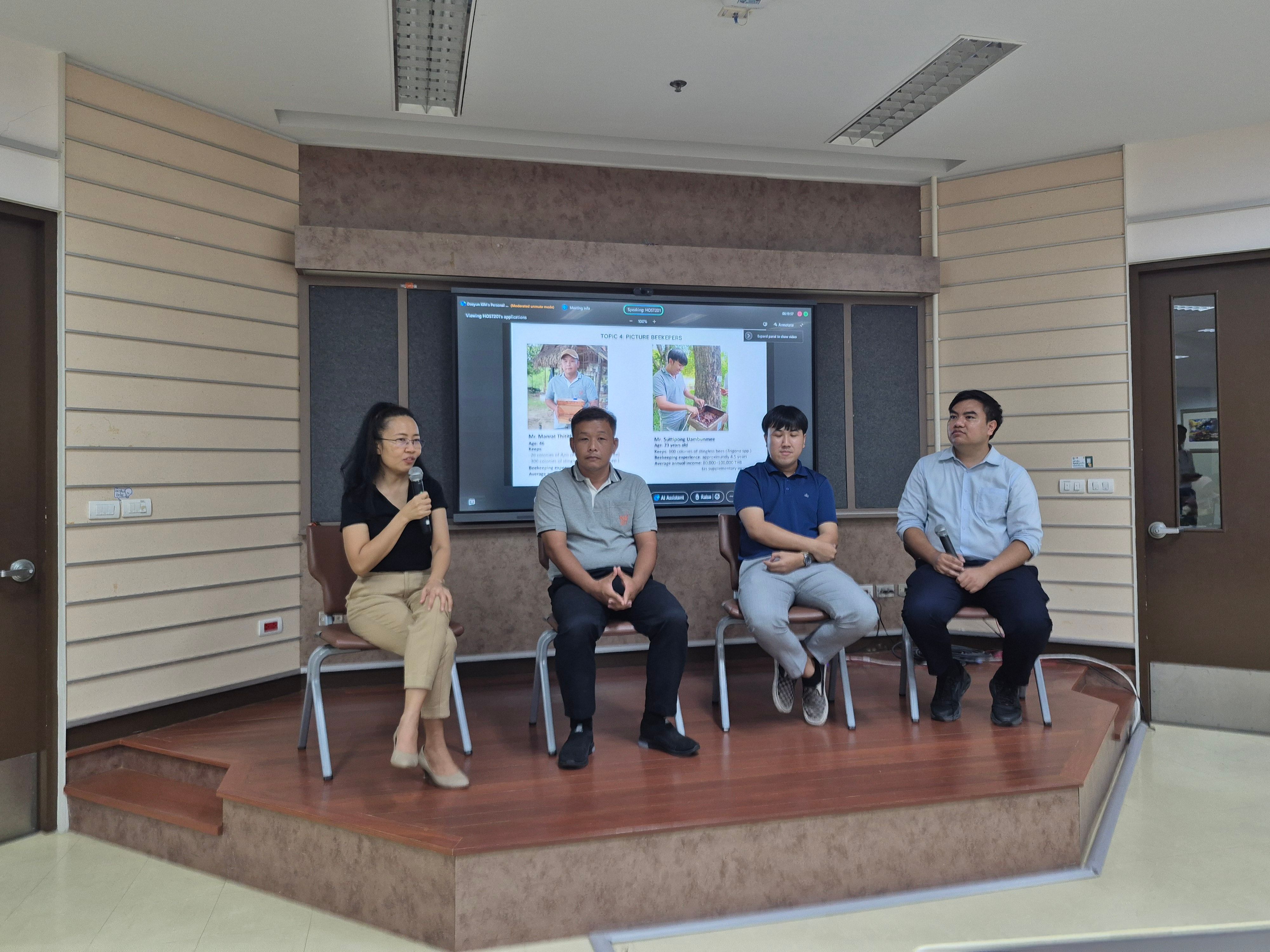
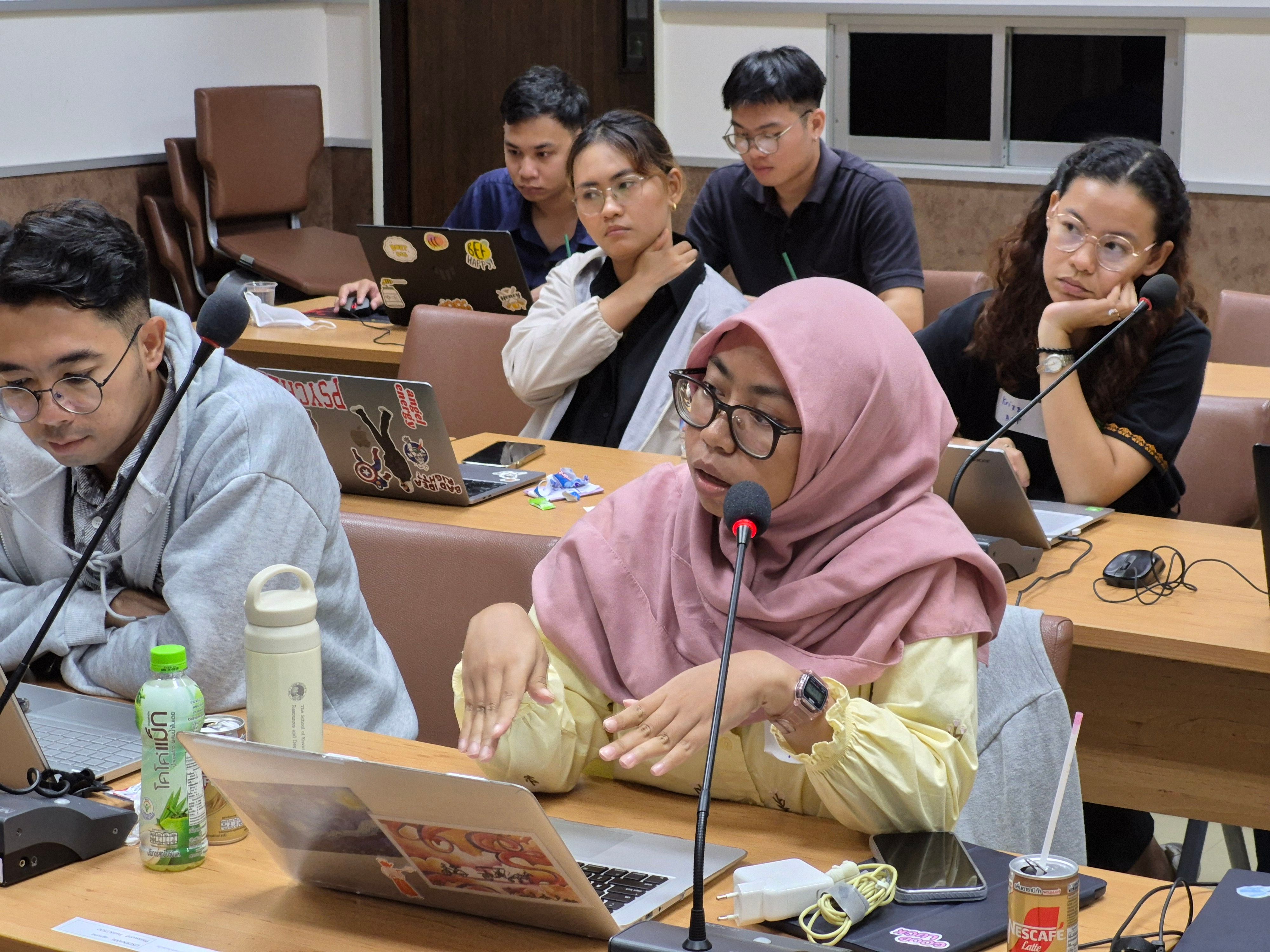
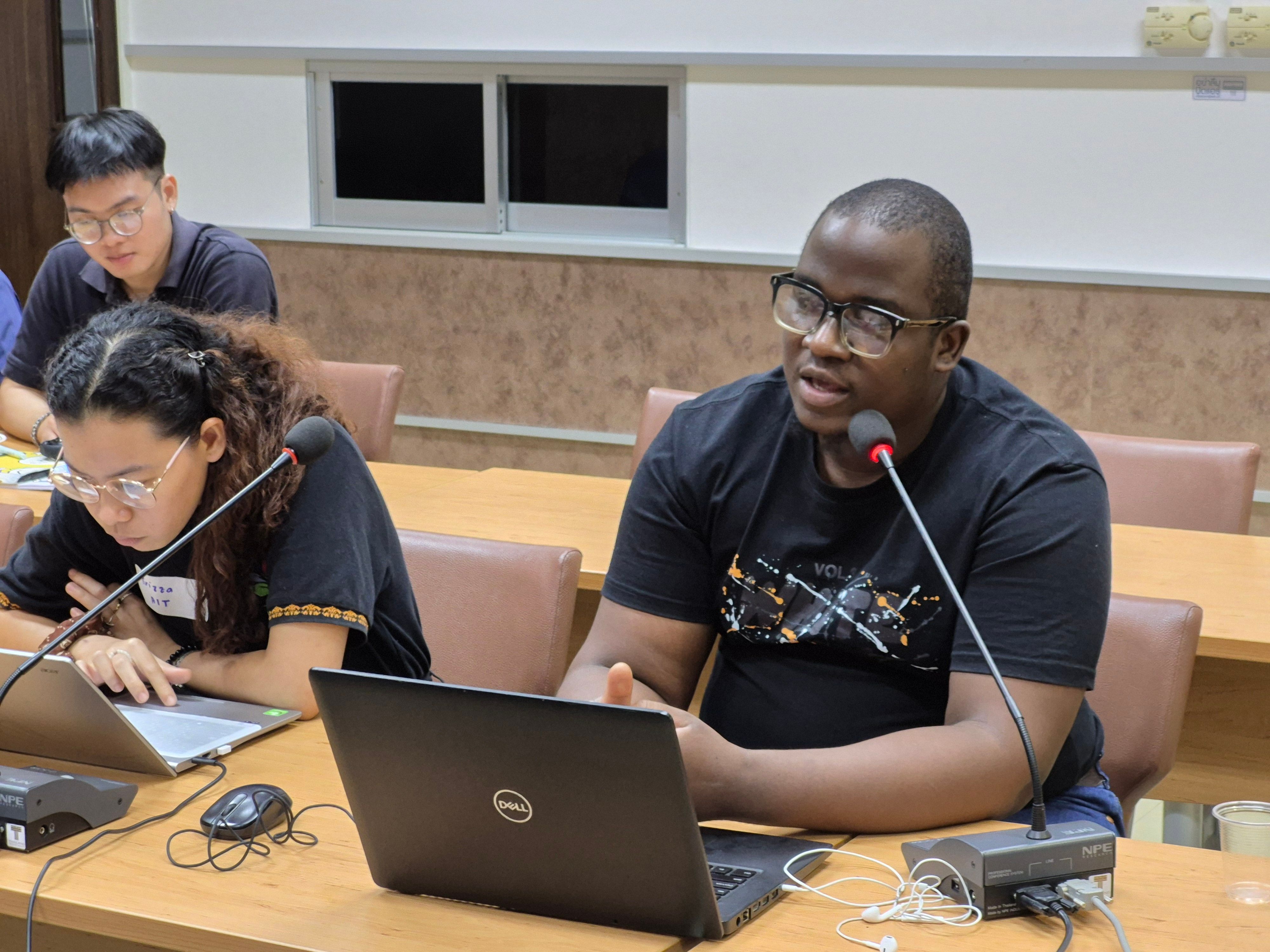 Outcomes
OutcomesThe symposium successfully provided students with real-world perspectives from government, academia, and local communities, fostering a deeper understanding of the challenges and opportunities in beekeeping under the impacts of climate change.
As a capstone to the event, each student group used their experiences and insights to develop and present their final group projects, demonstrating applied learning from this transdisciplinary approach.
